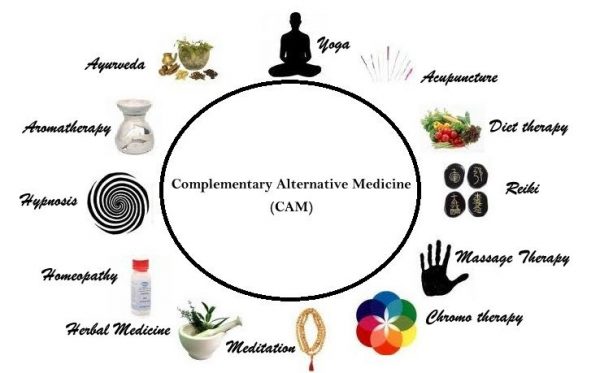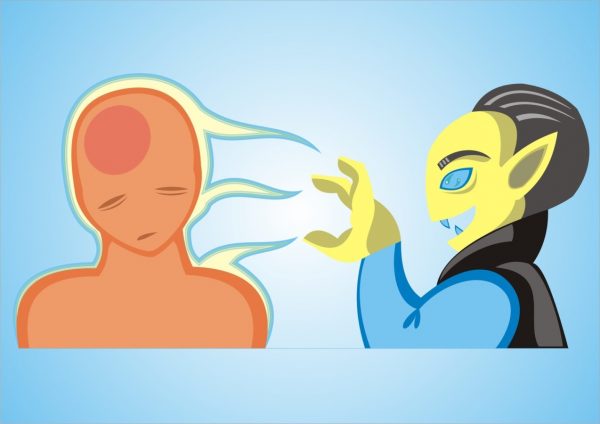Don’t forget that Kim, Erik and I are going to be on OM-Times Radio Inspired Living with Marc Lainhart and Kimberly Thalken TODAY. It airs LIVE from 2:00 PM to 3:00 PM CT. Call ins accepted! Click HERE. Here’s other information they want me to share:
Feel free to post your personal questions (including to Erik) (or private message us) on the INSPIRED LIVING RADIO (ILR) FACEBOOK OR TWITTER accounts (@inspired4us), and we will bring them live to air! This is a great way to interact with the LIVE show, Marc & Kim, along with celebrity guests!
Also, don’t forget about Erik’s Hour of Enlightenment radio show tomorrow at 5:00 PM PT/7:00 PM CT/8:00 PM ET. Think of a question, and no more than 15 minutes before the top of the hour, call 619-639-4606 to ask Erik it. To listen to the show, click on the “Listen” icon on the right sidebar of the blog or HERE.
Last announcement: It looks like 68% of you want me to dig way back and repost some old material on Tuesdays and Thursdays. That material really covers a lot of basics and big questions that many of the newbies haven’t had a chance to read and many of us, including me, would benefit from a refresher. After we try it for a few weeks, I’ll try to remember to poll you guys again to see if you’re still okay with it.
By the way, I would like to say that my dreams last night were not as bizarre as the one I posted about yesterday. In fact, one of them was of my typing the word “sessions” over and over again on my laptop. That’s right up there with my dreams about folding laundry. I like it a lot better than my recurrent dream about having to return to high school to take some courses I missed. In that dream, I’m my current age and, what’s worse, I forget to put on clothes. Sigh.
Enough of the boring stuff. Let’s see what Erik says in his last part about empathy. There’s a lot of practical advice in this one.
Me: Okay, so what kind of spiritual contracts would we be talking about?
Erik: Awareness where you know more, but there’s no ability to learn about it from a book. It could also be that the empath helps people get back to their roots. They do reinforce simplicity. Simplicity doesn’t have to be small. It can be very, very big, but it’s just getting back to the point of it. We need that in our culture now. It’s about going away from big corporations and going to the Ma and Pa shops.
Jamie: He’s going on about getting away from computer customer service and getting back to one-on-one and really being there for people.
Erik: Empathics really love doing that.
Me: Oh, I hope that we get there. I don’t think it’s very close, though. Those big corporations have a toehold.
Erik: Yeah, Pharma.
Me: Big Pharma. Okay, so last but not least, give us some ways that an empath can still have their wonderful abilities but yet not be overwhelmed by them. Any visualizing techniques, for example?
Erik: Mostly it’s forgetfulness, Mom.
Me: Well, I’ve got that one down good!
Jamie laughs.
Erik: You can get up in the morning and say your prayer, your affirmation for protection like, “I’m going to keep my energy and everyone is going to keep theirs.” “I’m not sharing my energy today so I can get a clearer insight on what is mine and what is theirs.” Empathics need to depend on being disciplined in the moment. It’s the forgetfulness of that that kind of sabotages them. Then they go back into the mood swings and not knowing and being overwhelmed when they could just take every moment that their feeling [uncomfortable] and ask, “Is this really me or is it me being a satellite dish processing all the fucking shit around me?” With that simple awareness, you can flip the switch. You can’t turn off completely. There’s not a process where you can shut that shit down. That’s what happens when you die. So it’s not about closing down or shutting down. It’s about clearly identifying: me, you, me, you. It’s not about adopting the, “I am separate from All That Is because that’s bullshit, too. It’s just about identifying your personal experience versus retrieving everybody else’s information and personal experiences.
Me: Okay, so just be aware of every time you feel off.
Erik: Yes.
Me: “Is this mine or is this somebody else’s.”
Erik: Yeah, and I love the concept of having something visual around you. If your symbol of protection is a pyramid, then keep a little one with you or in your car. It can be a picture of one.
Me: Oh, okay!
Erik: If you’re a kinetic person, find a rubber band—
Jamie (pulling on a rubber band around her wrist): that I’ve been playing with this whole time.
Erik: Keep it around your wrist. I love that physical contact. Play with it. Snap it. Maybe you can write a little note that says, “What’s yours?” or “Is it mine or is it yours?”
Must be a pretty damn thick rubber band.
Erik: Having these reminders wherever you’re stationed the most throughout the day—your desk, your car, the kitchen—to keep you aware of it. With practice, you’ll get it down just fine, but this is not the kind of technique that you’re going to get (He snaps his fingers) and the next time it’s so much easier.
Me: Yeah, it takes practice.
Erik: It is a discipline for you empathic people.
Me: Any other techniques? What about visualizing a bubble of golden white light around you? Of course you can’t keep visualizing that throughout the day.
Erik: See, the thing with empathics is that their energy—energy is so easy to manipulate. Just changing your thought changes the structure of the energy around you. That’s how easy it is. You need to keep that in mind because with an empath, they’re constantly changing to meet the needs of the room they just walked into, the person that just started a new conversation with them. So say you’re an empath. If you get up and make your prayer or intent and you’re like, “Just protect me all day. What’s mine is mine; what’s yours is yours,” that’s fine and everything, but moving throughout their day, they need so many adjustments that I’d love for the empath to be aware in each moment. When somebody new walks through the door or they walk into a new room, they change the way their energy is engaging with that so they can stay within their protective boundaries. That’s simply that discipline thing I was talking about. Have an image, a ring, a rubber band. Have something that reminds you again and again that energy is so easy to manipulate. They can just sneak all around you and then you’re processing and managing somebody else’s dickish-ness—
Jamie laughs.
Me: Oh, my god. All right. There’s the word!
Erik: You know it’s not yours, but now you’re thinking that way and you start to feel a little crazy. Once you have that down and you’re practicing it, you’ll be alerted to when it’s not you, and you’ll kind of laugh about it. You’ll go, “Oh, my god. I’ve been doing that, and it’s not really me at all! Okay, I get it.” Then you get back into the rhythm of it. Find a way to remind yourself of it. Of course you can use white light and all kinds of imagery of protection: beads, feathers, sprays, vibrations, colors, all kinds of things to support your cause of you staying you and everybody else staying them, but conscious awareness is really what’s going to help you with your empathic skills because then you can run it to its best degree. You can collect all the information, know more, be more, but not suffer from it.
Me: Yeah, that’s awesome. All right. That’s great!
Erik: You’re awesome, Mom.
Me: Aw, you’re awesome sauce. Anything else, sweetie?
Erik: No. No, I think that’s really good.
I ask Jamie to share the name of her YouTube channel and Facebook page, then we go through our usual goodbyes.
Here’s another great review for Erik’s book, My Life After Death. If you haven’t read it, please do. It can change your life in many ways, including eliminating all fears surrounding death and mitigating the grief you have for a deceased loved one. This review shows how the book helped a mother who lost her child:
This book was a godsend to me. My son took his own life the same way Erik did, and this book helped me understand why some people commit suicide and what happens to them afterwards. Yes, Erik uses the F word frequently (which I don’t like), but so did my son and so do most of his contemporaries. It does give the book more realism. For all the people complaining about it, if you have read much about metaphysical subjects, including NDE’s and reincarnation, you would know that things (even words) aren’t good or bad, they just are. If you’ve never been to “Heaven” or “Home” as Erik calls it, how do you know how they speak there? Do you really think God has a list of words you are not allowed to say? Which is all beside the point anyway, because his conversations are not with beings on the other side. He is speaking to humans, who do say those words.
This book is also more believable if you read his mother’s book “My Son in the Afterlife” by Dr. Elisa Medhus first. Her book is wonderful and gives credibility to Erik’s, because it explains more of the process of how she changed from being an Atheist to a believer in the Afterlife. As a physician, she didn’t become a believer through one session with a medium. She did a tremendous amount of research into the available literature and research on subjects such as consciousness, NDE’s, quantum physics and metaphysics. Her book and the Channeling Erik Blog are great resources (with many references) to learn about what scientists, physicians, philosophers and religious experts think about Life and the Afterlife.
Both Erik’s and Elisa’s books correlate well with other literature and research on these topics. Their biggest value (and that of their blog) is the personal aspect. As a mother who is trying to come to terms with the fact of my son’s suicide and the resulting despair and grief, Erik and Elisa’s personal observations and the love between them and all the blog members, have been a great help to me and given me solace when I so desperately needed it. My husband (who is not one to read this type of literature) has also been helped tremendously by Erik’s book.
I would recommend these two books highly to anyone who has lost a loved one to suicide or any other cause. They are also good books for anyone wanting to understand more about the afterlife, suicide, and bipolar disorder. If you know anyone you think might be considering suicide please tell them to read these books and/or look up the Channeling Erik Blog. Maybe it could help prevent a tragic loss of life.
–Janet Grappin




